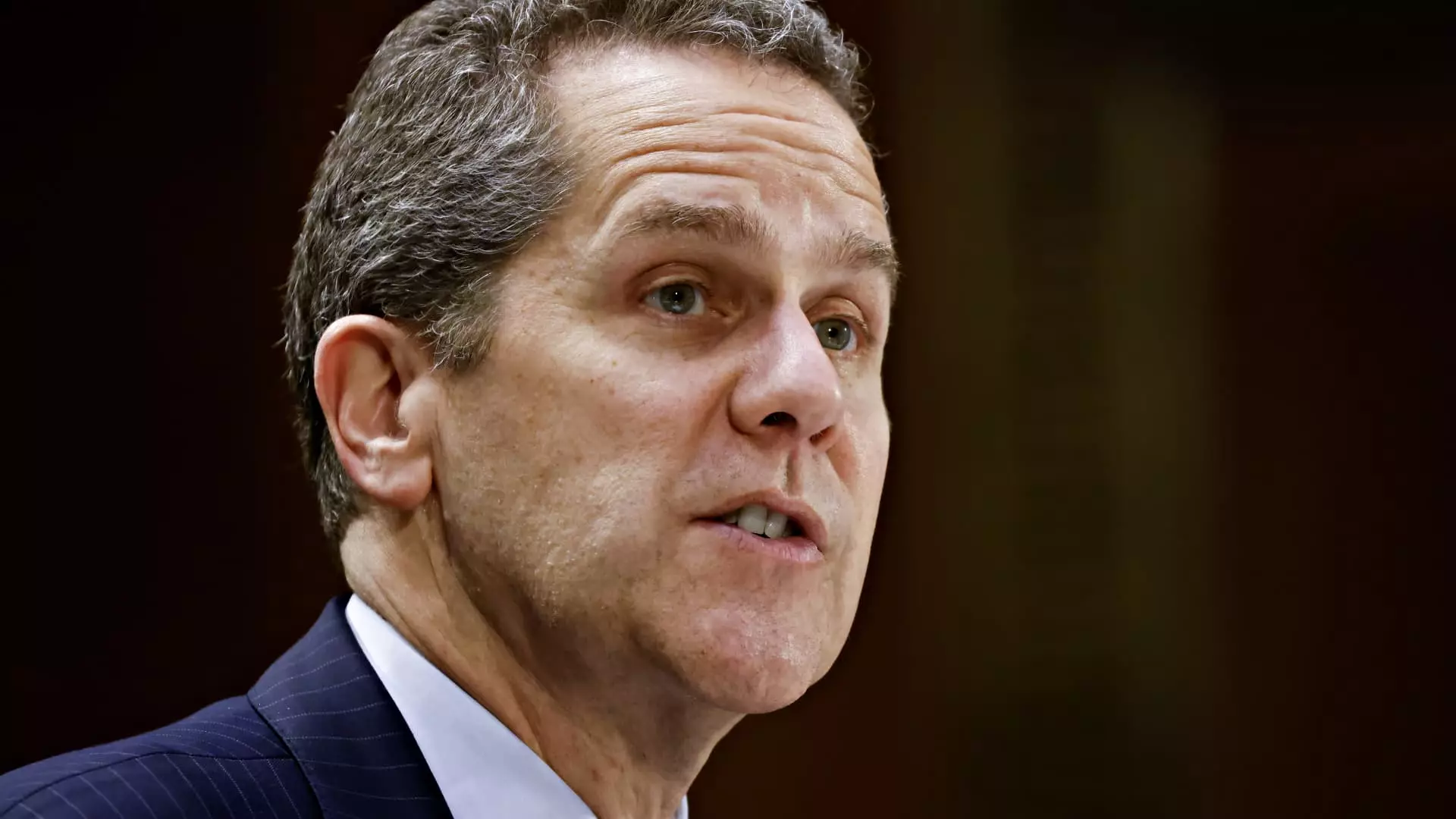In a significant move that reflects the evolving landscape of U.S. financial oversight, Michael Barr, the Federal Reserve’s vice chair for supervision, has announced his resignation, effective February 28. This resignation appears to be a strategic decision designed to facilitate a smoother transition as President-elect Donald Trump prepares to assume office. Barr will continue to serve as a governor on the Federal Reserve Board, a position he will hold until 2026, thereby maintaining a level of influence during this pivotal change.
The timing of Barr’s resignation is crucial. Speculation had been rife about Trump’s potential desire to appoint a more bank-friendly figure to the vice chair position—a role created in the wake of the 2008 financial crisis to enhance oversight of the banking sector. By preemptively stepping down, Barr is not only quelling rumors but also averting a contentious battle that could have distracted the Federal Reserve from its critical mission to safeguard the stability of the U.S. economy.
The Market Response to Leadership Changes
The immediate reaction from the financial markets underscores the significance of this leadership change. Following Barr’s announcement, bank stocks experienced an uptick, with the SPDR S&P Bank exchange-traded fund reporting gains of over 1%. This positive market response indicates that investors are cautiously optimistic about a potential shift in regulatory approach under Trump’s administration. Financial institutions, which have long been advocating for less stringent regulations, may perceive a new appointee as a harbinger of a more favorable regulatory environment.
Moreover, Barr’s assertion that his continued role as a governor would allow him to serve the American people more effectively suggests a commitment to addressing current challenges without the potential distraction of a contentious confirmation battle. His leadership saw the introduction of measures aimed at regulatory reform, but his decision to step down indicates a recognition of the need for adaptability in the face of changing political dynamics.
Challenges Ahead for the Federal Reserve
As the Federal Reserve prepares to name Barr’s successor, it confronts several pressing challenges. One of the most prominent issues is the ongoing revision of the Basel endgame regulations, which have drawn backlash from many within the banking industry. With Barr’s exit, the Fed has indicated that it will refrain from making substantial regulatory decisions until a new vice chair is appointed. This delay allows room for a new direction that could align more closely with the Trump administration’s financial philosophies.
The implications of this leadership transition extend beyond regulatory policy. The financial landscape remains fragile, as evidenced by the recent turmoil in the banking sector, exemplified by the collapse of institutions such as Silicon Valley Bank earlier in 2023. These developments have heightened the urgency to navigate potential crises swiftly while also considering long-term stability.
Michael Barr’s resignation marks a critical juncture in U.S. financial oversight, presenting both opportunities and challenges for the Federal Reserve. As President Trump prepares to appoint a successor, the banking community and market participants alike will be closely watching how these new developments unfold. Barr’s decision to resign offers a strategic approach to a political environment characterized by uncertainty, thereby allowing the Federal Reserve to focus on its primary mission amid a landscape rife with potential turmoil and upheaval. The upcoming months will undoubtedly be telling in terms of the regulatory landscape and the broader health of the U.S. economy.


Leave a Reply